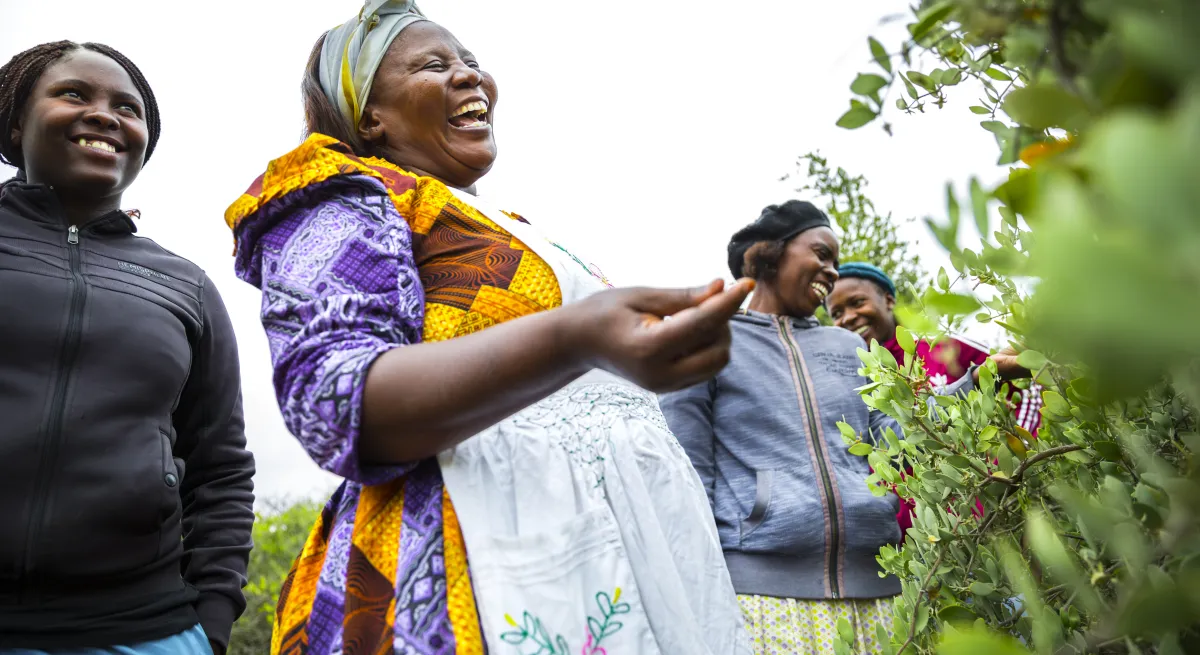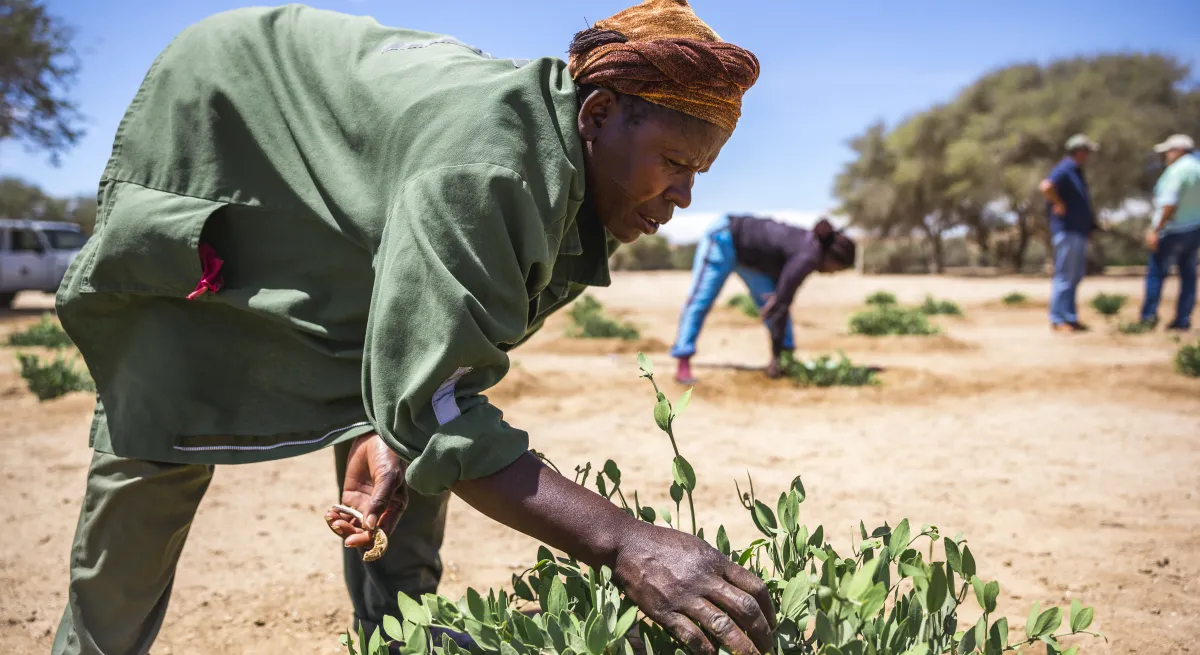Turning small-scale farmers into entrepreneurs connected to international clients in the cosmetic industry through farming, business, marketing and management skills.
-21.423310514713, 15.280727865938
In Namibia, women in desert regions lacked access to land, the financial resources, skills and tools that would enable them to successfully farm crops.
Women are the backbone of Namibian society but mostly excluded from business opportunities, especially in rural areas. With the support of Julius Baer Foundation, Women in Plant Oil Production provides access to land and trains women with no farming skills or financial background to establish jojoba plantations and start their own businesses. Jojoba, which grows well in dry desert conditions, is a well-known and highly valuable ingredient in cosmetic products.
So far, 20 hectares of land have been turned into jojoba plantations, with the plan to transform many more desert land. High quality jojoba is being exported to international cosmetic manufacturers, enabling the farmers to earn a steady income to support their families and stay true to their traditions.
Quick facts
- Namibia: Gubasan Farms
- Project support: 2019-2024
- Grant amount: CHF 110,000 per year
- This project is co-founded by a client of Julius Baer
- Upskilling female farmers to cultivate jojoba and commercialise its oil.
From small scale farmers...
Women with limited access to land or skills failed to identify new income-generating opportunities that would enable them to turn subsistence farming into a sustainable, profitable business.
... to sustainable entrepreneurs
The trained farmers are now connected with and supplying their Jojoba to the privileged purchaser of their raw material in Europe, as well as to international clients within the cosmetic industry.



I now own 20 hectares of farm land with a jojoba plantation and a new house, and I am a partner in a value chain of cosmetic products. For the first time in my life, I feel that I have a secured future and livelihood. I can now go to my own farm and stay there throughout the year to plant, grow, and harvest as a permament farmer. A place where I can grow old.
OUTPUT
20 hectares of land each were provided to 12 farmers for 99 years; a sustainable model has been developed turning desert land into valuable jojoba plantations.
OUTCOME
The farmers have been trained in farming and entrepreneurial skills, scaled up their plantation and today they provide employment improving the prospects of the local community.
HIGHLIGHT
After only 4 years, Jojoba for Namibia has already developed a small line of jojoba oil based cosmetic products dedicated to the European market.
Creating prosperity in a desert
• Namibia ranks as the 2nd most unequal country after South Africa.
• Rural communities, which lack development opportunities, cannot flourish and overcome poverty.
• The majority of households in Namibia are led by women, and the few who are employed have very low incomes.
• The project aims to create a shift towards fair and inclusive rural enterprise development benefiting rural Namibian farmers.
• Strategic links and new bridges are in the early stages of being built with the Namibian Government Ministry of Industrialization and Trade, civil society (Conservancies and Community Forest groups) and Namibian NGOs for
possible future collaboration.
Become a Changemaker

Are you interested in the JOJOBA for NAMIBIA initiative as a philanthropist, entrepreneur or academic? Do you wish to contribute or just to know more?
